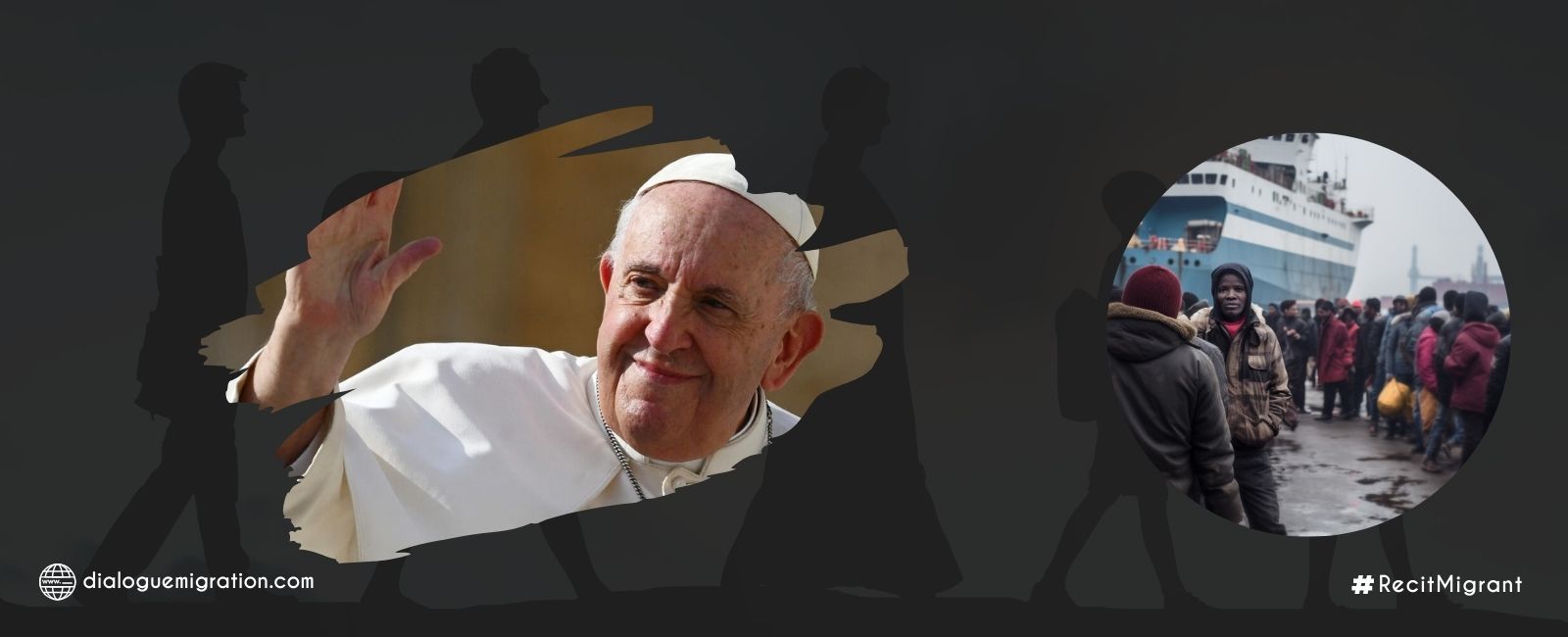

After 12 years at the helm of the Vatican, Pope Francis has died at the age of 88 on 21 April 2025, coinciding with Easter Monday. Jorge Mario Bergoglio, his birth name, was the first non-European pope to lead the Vatican in 13 centuries. Elected on 13 March 2013 to widespread surprise following the resignation of Benedict XVI, this Argentinian has profoundly altered the image of the Church by directing its focus towards the underprivileged, the marginalised and migrants.
He will be remembered as a very political pontiff with a southern orientation. Here at Dialogue Migration, we remember a pope for migrants. Just after his election, on 8 July 2013, taking everyone by surprise, the pope chose to visit the Italian island of Lampedusa, a graveyard for migrants often having passed through Libya.
“Immigrants dying at sea, in those boats that instead of being a pathway of hope have become a path of death… In this world of globalisation, we have fallen into a globalisation of indifference. We have become accustomed to the suffering of others; it does not concern us, it does not interest us, it is not our business,” these words he uttered that day still resonate today as a reminder of our humanity and the necessity of prioritising the rights of migrants.
From an Italian ship, he then cast a wreath of white flowers into the Mediterranean before pausing for reflection. This initial political gesture was followed by many others, which now constitute his legacy. On 31 March 2018, he personally baptised an undocumented migrant in St. Peter’s Basilica in the Vatican. John Ogah, originally from Nigeria, became a hero in Italy after confronting a robber. Two months before his death, Francis rebuked the mass expulsions of migrants carried out by American President Donald Trump, drawing criticism from the White House.
“How much contempt is sometimes directed towards the most vulnerable, the marginalised, the migrants,” he declared in his last public speech on the eve of his death, Sunday 20 April. This valiant stance by the former Archbishop of Buenos Aires demonstrates that the cause of migrants was central to his papacy.
Throughout his tenure, Pope Francis prioritised visits to countries in the Global South, even to regions that had rarely, if ever, been visited by previous pontiffs. Africa was part of this. He visited the continent five times and went to ten countries. The words and sentiments expressed during his visit to the Democratic Republic of Congo sounded like a plea for halting the plundering of Africa’s natural resources—looting that is often the cause of many migrants leaving their countries.
Now, the prevailing question is whether his humanitarian, pacifist, and migrant rights advocacy will be perpetuated at the head of the Vatican.
Recently Published
Subscribe to our newsletter!
Quick Links


